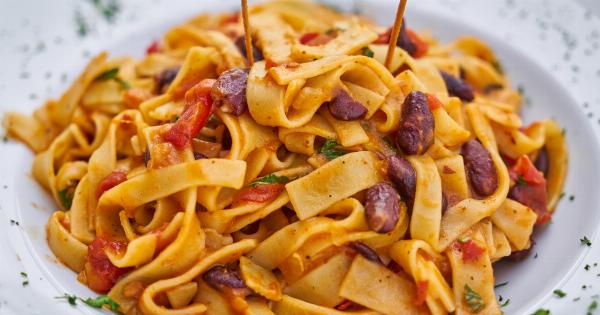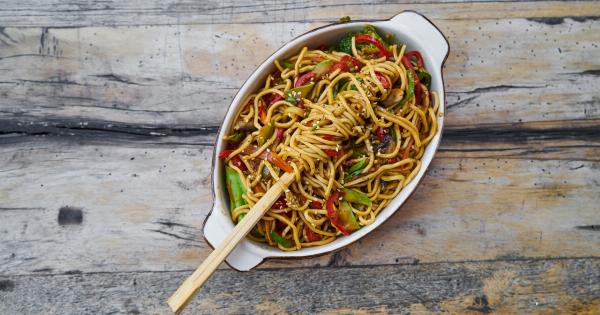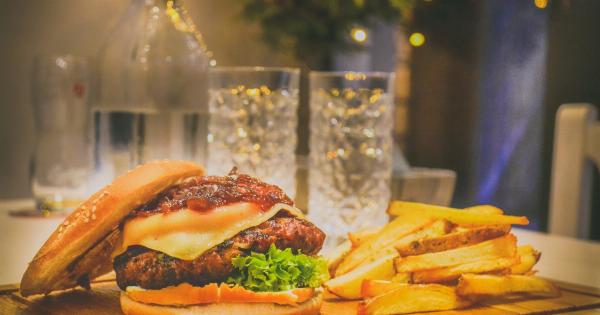During pregnancy, it is crucial to maintain a healthy and balanced diet to ensure the growth and development of the fetus. Fruits and vegetables are rich sources of essential nutrients that play crucial roles in fetal development and maternal health.
Here are some of the important fruits and vegetables that pregnant women should include in their diet:.
Avocado
Avocado is an excellent source of healthy fats, fiber, vitamins C, K, and B6, and potassium. These nutrients are crucial for the growth and development of the brain, immune system, and bones of the fetus.
The fiber content in avocado promotes digestion and reduces the risk of constipation, which is a common problem during pregnancy. Moreover, potassium helps regulate blood pressure and reduces the risk of preeclampsia, a pregnancy complication characterized by high blood pressure and damage to organs such as the liver and kidneys.
Spinach
Spinach is an excellent source of iron, folate, calcium, and vitamin K. Iron is essential for the formation of hemoglobin, the protein that carries oxygen in the blood.
During pregnancy, the mother’s blood volume expands, and the fetal red blood cells demand more oxygen, which increases the demand for iron. Folate is crucial for fetal development, especially the neural tube, which becomes the brain and spinal cord. Calcium is essential for fetal bone development, and vitamin K promotes blood clotting and bone health in both the mother and fetus.
Sweet Potato
Sweet potatoes are an excellent source of vitamin A, vitamin C, fiber, and potassium. Vitamin A is essential for fetal growth and development, especially for the eyes, skin, and immune system.
Vitamin C is a powerful antioxidant that protects the mother and fetus against free radicals, which can cause cellular damage and lead to pregnancy complications such as preeclampsia and preterm labor. Fiber promotes digestive health and reduces constipation, and potassium regulates blood pressure and reduces the risk of preeclampsia.
Berries
Berries such as strawberries, blueberries, raspberries, and blackberries are rich sources of vitamin C, fiber, and antioxidants.
Vitamin C helps the body absorb iron and fights against infections while antioxidants protect the mother and fetus against free radicals. Fiber promotes digestive health and reduces the risk of constipation and hemorrhoids, which are common problems during pregnancy.
Broccoli
Broccoli is an excellent source of vitamin C, vitamin K, folate, and fiber. Vitamin C helps the body absorb iron and fights against infections while vitamin K promotes blood clotting and bone health.
Folate is essential for fetal development, especially for the neural tube, and fiber promotes digestive health and reduces the risk of constipation.
Banana
Bananas are an excellent source of potassium, vitamin C, and vitamin B6. Potassium regulates blood pressure and reduces the risk of preeclampsia, while vitamin C fights against infections and builds immunity.
Vitamin B6 helps the body produce neurotransmitters, such as serotonin and norepinephrine, that regulate mood and promote mental health.
Carrots
Carrots are an excellent source of beta-carotene, which converts to vitamin A in the body. Vitamin A is essential for fetal growth and development, especially for the eyes, skin, and immune system.
Carrots also contain fiber, vitamin C, and potassium, which promote digestive health, build immunity, and regulate blood pressure, respectively.
Oranges
Oranges are an excellent source of vitamin C, fiber, and folate. Vitamin C helps the body absorb iron and fights against infections, while fiber promotes digestive health and reduces the risk of constipation.
Folate is essential for fetal development, especially for the neural tube.
Tomatoes
Tomatoes are an excellent source of vitamin C, fiber, and potassium. Vitamin C helps the body absorb iron and fights against infections, while fiber promotes digestive health and reduces the risk of constipation.
Potassium regulates blood pressure and reduces the risk of preeclampsia.
Grapes
Grapes are an excellent source of antioxidants, fiber, and potassium. Antioxidants protect the mother and fetus against free radicals, which can cause cellular damage and lead to pregnancy complications such as preeclampsia and preterm labor.
Fiber promotes digestive health and reduces the risk of constipation, and potassium regulates blood pressure and reduces the risk of preeclampsia.





























